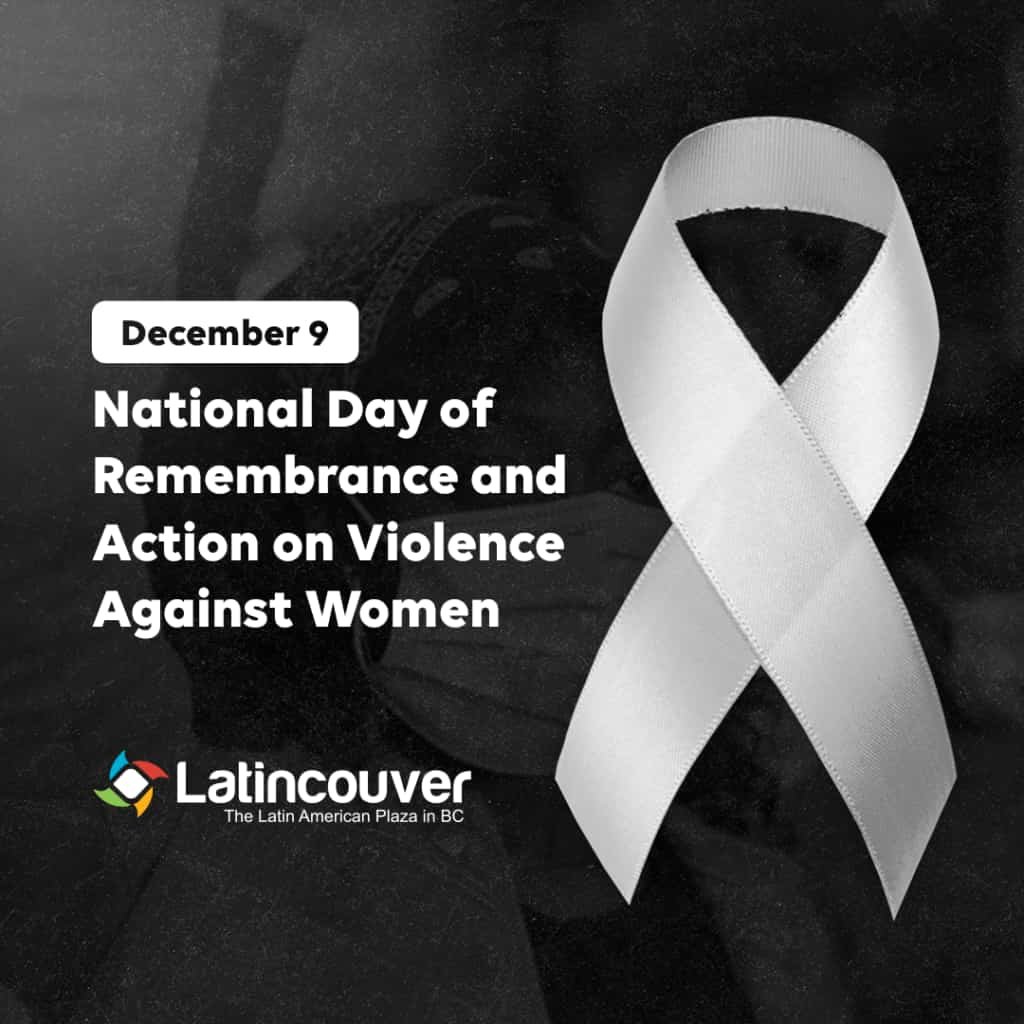By Gabriella Rodrigues
On December 6, 1989, an armed student murdered 14 women and injured other 10 in the name of “fighting feminism”. The act of violent misogyny happened at École Polytechnique, in Montreal, and shocked the entire Canada. Two years after this tragedy, in 1991, the Parliament of Canada established December 6 as The National Day of Remembrance and Action on Violence Against Women.
The day is not only a reminder of the lives that were lost to gender-based violence but also of those who are currently suffering all kinds of abuse, a situation that was amplified during the COVID-19 pandemic. In 2020, for instance, 160 women and children were killed in Canada, a significant increase when compared to 2019, according to the Canadian Women’s Foundation. UN Women has also reported a global increase in the use of violence against women helplines during the pandemic.
It is important to stress out that, although gender-based violence affects people from diverse backgrounds, women and children from minority groups in Canada are at greater risk. As reported by Statistics Canada in 2018, for example, Indigenous women are killed nearly at 7 times the rate of non-Indigenous women. In British Columbia, specifically, the numbers are not better. According to the provincial Government, Indigenous women and children are 2.7 times more likely to go through some violent episode.
Data also show that other groups are at a much higher risk of victimization. Young women, from 15 to 24 years old, are 5 times more likely to be physically or sexually assaulted, as pointed out by Statistics Canada, 2021. Women with disabilities and those who identify as lesbian and bisexual are also more vulnerable. Both groups are 3 to 4 times more likely to experience violence. Last but not least, immigrant women are also some of the main victims when it comes to gender-based violence since many face challenges like language barriers and economic dependency.
Another concern is the underreported cases of gender-based against women. Statistics Canada, 2018, shows that 70% of people who experience spousal violence and 93% who were victims of childhood abuse do not speak to authorities about it. The reasons why some people do not end their relationships and report the abuses are various, as explained by the Canadian Women’s Foundation. Financial dependency, death threats, and pets being harmed by abusers are the main ones.
How to help?
More than just numbers, these data and this day are a strong reminder for all of us to not only understand the seriousness of the problem but also to actively fight against this hate towards women. One way of helping break the cycle of violence in families and communities is by making a donation to the Canadian Women’s Foundation. Through their program Out of Violence, grants are provided to community organizations based in Canada that prevent and intervene in situations of gender-based violence.
According to the Foundation, companies can also commit to achieving gender equality in different ways. They can provide long-term support for the Foundation’s work, hold a fundraising event on behalf of it, launch a marketing campaign about gender equality with the institution’s help, support the signature annual fundraising event, and donate in-kind services and products that will facilitate the Foundation’s work.
IMPORTANT: If you or someone you know is facing any kind of gender-based violence, you can seek out support services through this link https://canadianwomen.org/support-services/. If it is an immediate danger, you can either call 911 or a local emergency number (police, fire, ambulance).
Sources:





